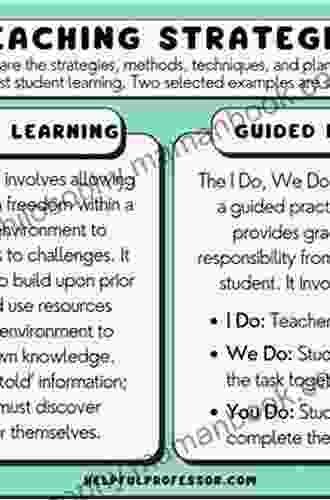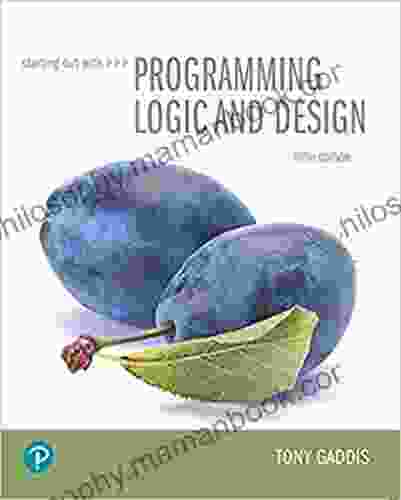Teaching Strategies and Practice From the Field: A Comprehensive Guide for Educators

As an educator, it is essential to stay up-to-date with effective teaching strategies and practices. This comprehensive guide, drawing from the experiences and insights of seasoned educators in the field, aims to provide a comprehensive overview of evidence-based teaching methodologies and their practical applications in the classroom. From fostering inclusive learning environments to implementing personalized learning plans, this article will delve into the intricacies of effective teaching, empowering educators with the knowledge and skills to enhance student engagement, academic achievement, and overall well-being.
Fostering Inclusive Learning Environments
Creating an inclusive classroom where every student feels valued, respected, and supported is paramount to effective teaching. Here are some key strategies for fostering inclusivity:
5 out of 5
| Language | : | English |
| File size | : | 4162 KB |
| Text-to-Speech | : | Enabled |
| Enhanced typesetting | : | Enabled |
| Word Wise | : | Enabled |
| Screen Reader | : | Supported |
| Print length | : | 177 pages |
- Establish a welcoming and respectful atmosphere: Greet students with warmth, acknowledge their unique strengths, and create a space where they feel comfortable sharing their ideas and perspectives.
- Use inclusive language: Avoid using biased or exclusive language that might alienate certain students. Instead, opt for gender-neutral terms, respectful language, and acknowledge the diversity of backgrounds and experiences in the classroom.
- Provide multiple learning opportunities: Cater to diverse learning styles by offering a variety of learning activities, materials, and assessments that accommodate different strengths and needs.
- Create flexible grouping strategies: Encourage collaboration and peer support by forming flexible learning groups based on individual strengths, interests, and learning goals.
- Address individual needs: Regularly assess student learning and provide targeted support to meet the specific needs of each student, whether through differentiated instruction, extra resources, or individualized learning plans.
Implementing Personalized Learning Plans
Personalized learning recognizes that every student is unique and benefits from tailored instruction that caters to their individual needs, interests, and learning pace. Here's how to effectively implement personalized learning in the classroom:
- Assess student needs: Conduct thorough assessments to identify each student's strengths, areas for growth, and learning preferences.
- Create individualized learning goals: Collaborate with students to set clear and achievable learning goals based on their individual needs and aspirations.
- Design differentiated learning activities: Plan and implement a variety of learning activities that cater to diverse learning styles and interests, providing students with choices and opportunities to explore topics in depth.
- Provide ongoing feedback: Regularly provide constructive feedback to students on their progress, offering specific suggestions for improvement and celebrating their successes.
- Monitor and adjust: Continuously monitor student progress and make adjustments to learning plans as needed to ensure that they are meeting their individual goals.
Technology-Enhanced Learning Strategies
In today's digital age, technology plays a vital role in enhancing student learning. Here are some effective strategies for incorporating technology into your teaching practice:
- Use interactive whiteboards or projectors: Engage students with interactive technology that allows them to collaborate, share ideas, and access a wider range of learning resources.
- Incorporate online learning platforms: Utilize online learning platforms to provide students with access to additional resources, interactive simulations, and collaborative learning tools.
- Use gamification and simulations: Gamify learning experiences and incorporate virtual simulations to make learning more engaging and motivating for students.
- Promote digital citizenship: Teach students about responsible and ethical use of technology, including issues of cyberbullying, privacy, and digital literacy.
- Provide technical support: Ensure students have access to adequate technical support to address any issues they may encounter while using technology for learning.
Assessment and Evaluation Strategies
Effective teaching involves ongoing assessment and evaluation to monitor student progress and inform instructional decision-making. Here are some key assessment strategies:
- Use formative assessments: Regularly conduct formative assessments such as quizzes, observations, and peer feedback to provide timely feedback and identify areas where students need additional support.
- Incorporate summative assessments: Use summative assessments such as tests, projects, and portfolios to evaluate student learning at the end of a unit or course.
- Use a variety of assessment methods: Employ a range of assessment methods to cater to diverse learning styles and to assess different aspects of student learning.
- Provide meaningful feedback: Offer specific, constructive feedback on student work, focusing on strengths and areas for improvement.
- Involve students in assessment: Foster student self-assessment and peer assessment to promote ownership of learning and develop critical thinking skills.
Professional Development and Collaboration
Continuous professional development and collaboration with colleagues are essential for educators to stay updated on best practices and enhance their teaching abilities. Here are some strategies for ongoing growth:
- Attend workshops and conferences: Seek out professional development opportunities to learn about new teaching methods, research findings, and educational trends.
- Collaborate with colleagues: Share ideas and resources with colleagues, observe each other's teaching practices, and provide constructive feedback.
- Join professional organizations: Become a member of professional organizations such as the National Education Association or the American Educational Research Association to connect with other educators and stay informed about current issues in education.
- Read educational journals and books: Keep up-to-date on the latest research and best practices by reading educational journals and books.
- Reflect on your teaching practice: Regularly take time to reflect on your teaching methods and identify areas for improvement.
Effective teaching is an ongoing journey of learning, reflection, and adaptation. By embracing evidence-based teaching strategies, fostering inclusive learning environments, implementing personalized learning plans, incorporating technology, effectively assessing and evaluating student learning, and engaging in professional development and collaboration, educators can create dynamic and engaging learning experiences that empower students to reach their full potential. This comprehensive guide provides a valuable resource for educators seeking to enhance their teaching practices and foster a lifelong love of learning in their students.
Remember, teaching is not just a profession but a noble calling that shapes the minds and hearts of young people. By embracing innovative teaching approaches and staying committed to continuous improvement, educators can make a profound difference in the lives of their students and contribute to a brighter future for all.
5 out of 5
| Language | : | English |
| File size | : | 4162 KB |
| Text-to-Speech | : | Enabled |
| Enhanced typesetting | : | Enabled |
| Word Wise | : | Enabled |
| Screen Reader | : | Supported |
| Print length | : | 177 pages |
Do you want to contribute by writing guest posts on this blog?
Please contact us and send us a resume of previous articles that you have written.
 Top Book
Top Book Novel
Novel Fiction
Fiction Nonfiction
Nonfiction Literature
Literature Paperback
Paperback Hardcover
Hardcover E-book
E-book Audiobook
Audiobook Bestseller
Bestseller Classic
Classic Mystery
Mystery Thriller
Thriller Romance
Romance Fantasy
Fantasy Science Fiction
Science Fiction Biography
Biography Memoir
Memoir Autobiography
Autobiography Poetry
Poetry Drama
Drama Historical Fiction
Historical Fiction Self-help
Self-help Young Adult
Young Adult Childrens Books
Childrens Books Graphic Novel
Graphic Novel Anthology
Anthology Series
Series Encyclopedia
Encyclopedia Reference
Reference Guidebook
Guidebook Textbook
Textbook Workbook
Workbook Journal
Journal Diary
Diary Manuscript
Manuscript Folio
Folio Pulp Fiction
Pulp Fiction Short Stories
Short Stories Fairy Tales
Fairy Tales Fables
Fables Mythology
Mythology Philosophy
Philosophy Religion
Religion Spirituality
Spirituality Essays
Essays Critique
Critique Commentary
Commentary Glossary
Glossary Bibliography
Bibliography Index
Index Table of Contents
Table of Contents Preface
Preface Introduction
Introduction Foreword
Foreword Afterword
Afterword Appendices
Appendices Annotations
Annotations Footnotes
Footnotes Epilogue
Epilogue Prologue
Prologue Matthew Dicks
Matthew Dicks Teepa Snow
Teepa Snow Walter Stahr
Walter Stahr P D Workman
P D Workman Teresa Mccarthy
Teresa Mccarthy Henry Kuttner
Henry Kuttner Anthony D Fredericks
Anthony D Fredericks Kim Addonizio
Kim Addonizio Amanda Deibert
Amanda Deibert Randi Kreger
Randi Kreger Coreen Sears
Coreen Sears Jaxon Reed
Jaxon Reed Emily St John Mandel
Emily St John Mandel S J A Turney
S J A Turney Ian Bremmer
Ian Bremmer Kotomin
Kotomin Greyson Beights
Greyson Beights Sam Kaplan
Sam Kaplan Agnes Hsu
Agnes Hsu Marjorie E Scaffa
Marjorie E Scaffa
Light bulbAdvertise smarter! Our strategic ad space ensures maximum exposure. Reserve your spot today!

 Allen GinsbergSecretary Of Agriculture, Statesman, Author, Patriot, President, And Prophet...
Allen GinsbergSecretary Of Agriculture, Statesman, Author, Patriot, President, And Prophet... Dalton FosterFollow ·16.1k
Dalton FosterFollow ·16.1k Charles BukowskiFollow ·2.7k
Charles BukowskiFollow ·2.7k Danny SimmonsFollow ·8k
Danny SimmonsFollow ·8k Clarence MitchellFollow ·11k
Clarence MitchellFollow ·11k Roland HayesFollow ·10.5k
Roland HayesFollow ·10.5k Stan WardFollow ·15.7k
Stan WardFollow ·15.7k Carlos FuentesFollow ·16.8k
Carlos FuentesFollow ·16.8k Elias MitchellFollow ·17k
Elias MitchellFollow ·17k

 Ignacio Hayes
Ignacio HayesShipwrecked For 13 Days On Coral Reef: A Tale of Survival...
In the vast expanse of the...

 Gerald Parker
Gerald ParkerWhere the World Is Quiet: Delving into a Realm of Serene...
A Tapestry of Serenity In the tapestry...

 Charles Bukowski
Charles BukowskiPloughshares Winter 2009: Guest Edited by Tony Hoagland
Ploughshares...

 Rubén Darío
Rubén DaríoAnthology of Massachusetts Poets: William Stanley...
William Stanley...

 Jason Hayes
Jason HayesSean Kenney's Mesmerizing Robot Masterpieces: A Journey...
In a realm where imagination meets...

 Terence Nelson
Terence NelsonUnveiling the Elite Force: The Commander Men of Hidden...
In the shadows of society, where justice...
5 out of 5
| Language | : | English |
| File size | : | 4162 KB |
| Text-to-Speech | : | Enabled |
| Enhanced typesetting | : | Enabled |
| Word Wise | : | Enabled |
| Screen Reader | : | Supported |
| Print length | : | 177 pages |










